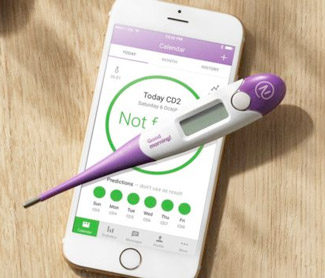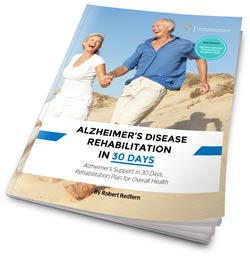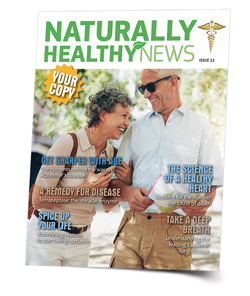Health News (Week 20 – 2017)
By Robert Redfern
It used to be that only those in their later years had to be concerned about hormone imbalances but like most diseases it is increasingly being seen in the younger population. It’s not surprising when you consider the causes of hormone imbalances.
Hormone imbalances can have strong effects on our mental, emotional, physical health and even our state of mind. They play an important role in strength, feeling in control, appetite, mood, and weight, etc. In my 70s I expected a certain hormone decline and that I would need to take care of my hormones but with a nutritionally deficient diet, and a fast-paced modern, stress-filled work life, even young people in their 20s and 30s are suffering from hormone burnout.
If you feel that you are suffering hormone imbalance at any age then there are essential lifestyle steps that will ensure healthy hormones and a healthy body.
Step 1.
Ensure you include high protein foods and healthy fats in most meals and snacks.
These are essential for healthy hormones and rebuilding your body. They also help with appetite reduction, healthy weight and improved moods.
Examples to include: Organic or pasture raised chicken eggs, coconut oil and coconut milk, avocados, olive oil, tree nuts including almonds/brazils, oats, broccoli, Brussel sprouts, tuna, quinoa, lentils, and (wild caught) fish.
Step 2.
Engage in regular exercise and fast daily walks – 3-5 miles per day.
As well as not sitting down for more than 3-4 hours in total per day, simply walking a total of 3-5 fast miles every day is enough exercise to help boost essential healthy hormones for building muscle, testosterone and DHEA for feeling invigorated, along with stimulating growth hormones for anti-ageing.
Lifting weights, vigorous housework or gardening will also contribute to improved wellbeing.
The really important thing is that it lowers blood sugar levels and insulin which may be the greatest causes of hormone imbalance.
Step 3.
Cut out, or Cut down on Starchy Carbs and High Sugar Foods
Not only do these foods elevate sugar and insulin dramatically, they also cause huge free radical damage internally to all parts of your body.
These dangerous foods include: grains and cereals, potatoes, white rice, high sugar roots such as parsnips, fruit juices, and colas. If in doubt, leave it out!
Step 4.
Have a Snack Plan.
No matter if it’s travelling, or being at work or home, if you are prone to snacking then plan and have your snacks ready so you don’t resort to junk foods on the go. It is usually water we crave so always have a small bottle of water on hand and my favourite – a pack of nuts (chew very slowly to get all of the nutrition).
Step 5.
Deal With the Stress Hormones
Most people know by now that cortisol and adrenaline wreak havoc on your body, blood sugar levels and your hormones. The fastest way to lower these is to breathe from the diaphragm using the 4-7-8 breath exercise method.
With this method, start by exhaling and pulling your tummy in and under your ribcage. Start the intake of breath into your nose and inflate the tummy to the count of 4. Hold for the count of 7, and then slowly breathe out through your mouth to the count of 8 while pulling the tummy in under the ribcage. At the same time, relax the muscles in your jaw and head. After completing each breath exhale and say to yourself ‘let go’.
This really works with practice and you will also find it will balance blood pressure and heart rate. You can also download a phone or tablet app on Apple and Android devices called Breathe 478 to teach you the correct relaxed breathing rhythm.
Step 6.
Eat Balanced Meals
Eating the same sized nutritious meals every day may help your system to get into a healthy hormone rhythm. Large meals once a day and starving yourself the next day may upset your whole system and for this reason is best avoided.
Step 7.
A Good Night’s Sleep
Getting a good night’s sleep is critical for your hormone balance. Studies are clear, whether young or old, your long-term health and short-term function depends upon 7 to 9 hours of regular high quality sleep.
Rather than a ‘good night’ sleep we need a ‘perfect night sleep’ and we need to rehearse and practice the things that will achieve this perfect sleep.
A perfect night’s sleep needs:
- A dark room with the tiniest of floor night lights. Avoid computers, phones, reading devices and artificial lighting 3 hours before bed or use ‘Honeywell orange glasses’ for a cheap solution.
- A quiet, cool room with a comfortable bed.
- Sleep on your side, especially if you are prone to snoring or sleep apnoea.
- Don’t drink large quantities of any liquid 3 hours before sleep but tiny sips of water are ok.
- Only eat foods that help you to sleep in the 3 hours before going to bed.
- Supplement with regular melatonin if you have trouble getting to sleep and RealFocus or RelaxWell to help you stay asleep.
- Take Serrapeptase in the evening if you are suffering from inflammation.
In Conclusion
I cannot be clearer, healthy hormones are critical to your health, function and anti-ageing. Unhealthy hormones contribute to many diseases including diabetes and heart diseases.
Three things: Walking, nutritious foods and breathing, are your strongest assets for staying younger, healthier and stronger with healthy hormones.
If you cannot get a full night’s sleep then have a 30 minute nap in the daytime.
Supplements for healthy hormones:
 |
 |
 |
 |
 |
 |
 |
 |






Dear robert,
I have hysterectomy with fallopian in tact, since then I have terrible chronic back pain, I have my hormones and thyroid checked – but its all normal – any advice what shall I take
Hello Anna, start with the Serranol 2 x 3 per day on an empty stomach, reducing to 1 x 3 as relief is felt. This works as a powerful anti-inflammatory and anti-oxidant formula. Plus rub the Ancient Minerals Magnesium Oil Ultra on to the back, and rest of the body daily to see if that helps.